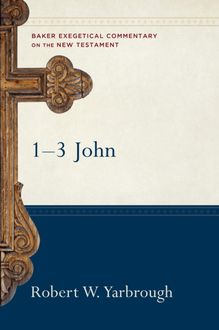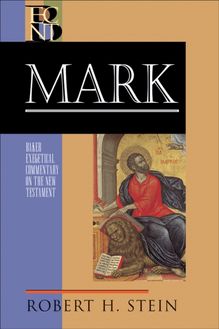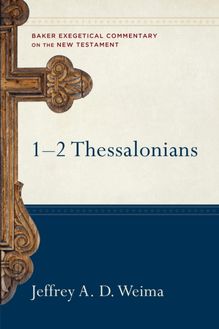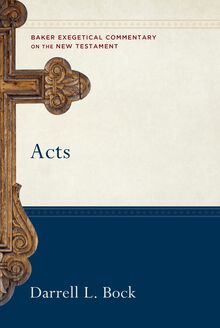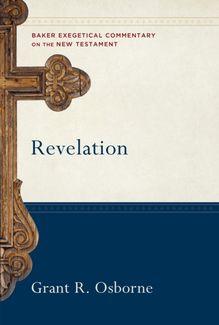-
 Univers
Univers
-
 Ebooks
Ebooks
-
 Livres audio
Livres audio
-
 Presse
Presse
-
 Podcasts
Podcasts
-
 BD
BD
-
 Documents
Documents
-
- Cours
- Révisions
- Ressources pédagogiques
- Sciences de l’éducation
- Manuels scolaires
- Langues
- Travaux de classe
- Annales de BEP
- Etudes supérieures
- Maternelle et primaire
- Fiches de lecture
- Orientation scolaire
- Méthodologie
- Corrigés de devoir
- Annales d’examens et concours
- Annales du bac
- Annales du brevet
- Rapports de stage
La lecture à portée de main
Vous pourrez modifier la taille du texte de cet ouvrage
Découvre YouScribe en t'inscrivant gratuitement
Je m'inscris1-2 Thessalonians (Baker Exegetical Commentary on the New Testament) , livre ebook
Découvre YouScribe en t'inscrivant gratuitement
Je m'inscrisEn savoir plus
Vous pourrez modifier la taille du texte de cet ouvrage
En savoir plus

Description
Sujets
Informations
| Publié par | Baker Publishing Group |
| Date de parution | 11 novembre 2014 |
| Nombre de lectures | 0 |
| EAN13 | 9781441220981 |
| Langue | English |
| Poids de l'ouvrage | 3 Mo |
Informations légales : prix de location à la page 0,1440€. Cette information est donnée uniquement à titre indicatif conformément à la législation en vigueur.
Extrait
Series Page
BAKER EXEGETICAL COMMENTARY ON THE NEW TESTAMENT
ROBERT W. YARBROUGH and JOSHUA W. JIPP, EDITORS
Volumes now available:
Matthew David L. Turner
Mark Robert H. Stein
Luke Darrell L. Bock
Acts Darrell L. Bock
Romans, 2nd ed. Thomas R. Schreiner
1 Corinthians David E. Garland
2 Corinthians George H. Guthrie
Galatians Douglas J. Moo
Ephesians Frank Thielman
Philippians Moisés Silva
Colossians and Philemon G. K. Beale
1–2 Thessalonians Jeffrey A. D. Weima
James Dan G. McCartney
1 Peter Karen H. Jobes
1–3 John Robert W. Yarbrough
Jude and 2 Peter Gene L. Green
Revelation Grant R. Osborne
***
Jeffrey A. D. Weima (PhD, Wycliffe College, University of Toronto) is professor of New Testament at Calvin Theological Seminary, where he has taught for more than twenty years. Among his published writings are Neglected Endings: The Significance of the Pauline Letter Closings , an annotated bibliography of works on 1 and 2 Thessalonians, and 1 and 2 Thessalonians in the Zondervan Illustrated Bible Backgrounds Commentary .
© 2014 by Jeffrey A. D. Weima
Published by Baker Academic
a division of Baker Publishing Group
P.O. Box 6287, Grand Rapids, MI 49516-6287
www.bakeracademic.com
Ebook edition created 2014
Ebook corrections 03.16.2022
All rights reserved. No part of this publication may be reproduced, stored in a retrieval system, or transmitted in any form or by any means—for example, electronic, photocopy, recording—without the prior written permission of the publisher. The only exception is brief quotations in printed reviews.
Library of Congress Cataloging-in-Publication Data is on file at the Library of Congress, Washington, DC.
ISBN 978-1-4412-2098-1
Unless otherwise indicated, all Scripture quotations are the author’s own translation.
Scripture quotations labeled NIV are from the Holy Bible, New International Version®. NIV®. Copyright © 1973, 1978, 1984, 2011 by Biblica, Inc.™ Used by permission of Zondervan. All rights reserved worldwide. www.zondervan.com
Baker Publishing Group publications use paper produced from sustainable forestry practices and post-consumer waste whenever possible.
For my wife Bernice:
“How can I thank God enough for you?”
Τίνα εὐχαριστίαν δύναμαι τῷ θεῷ ἀνταποδοῦναι περὶ σοῦ;
(1 Thess. 3:9)
For my children Rebekah, Allison, Naomi, and Samuel:
For my sons-in-law Luke and Jeffrey:
For my grandsons Leo and Graham:
“I pray always about you that our God may make you worthy of his calling.”
Προσεύχομαι πάντοτε περὶ ὑμῶν, ἵνα ὑμᾶς ἀξιώσῃ τῆς κλήσεως ὁ θεὸς ἡμῶν.
(2 Thess. 1:11)
For my son David:
“I do not grieve like the rest who do not have hope.”
Οὐ λυποῦμαι καθὼς καὶ οἱ λοιποὶ οἱ μὴ ἔχοντες ἐλπίδα.
(1 Thess. 4:13)
Contents
Cover
Series Page
Title Page
Copyright Page
Dedication
Series Preface
Author’s Preface
Abbreviations
Transliteration
Map
Introduction to 1–2 Thessalonians
1 Thessalonians
I. Letter Opening (1:1)
II. Thanksgiving (1:2–10)
Excursus 1 : Is 1 Thessalonians 1:9b–10 Pre-Pauline?
III. Defense of Apostolic Actions and Absence (2:1–3:13)
A. Defense of Past Actions in Thessalonica (2:1–16)
Excursus 2 : Textual Reading of 1 Thessalonians 2:7
B. Defense of Present Absence from Thessalonica (2:17–3:10)
C. Transitional Prayers (3:11–13)
IV. Exhortations to the Thessalonians (4:1–5:22)
A. Increasing in Conduct That Pleases God (4:1–12)
B. Comfort concerning Deceased Christians at Christ’s Return (4:13–18)
C. Comfort concerning Living Christians at Christ’s Return (5:1–11)
D. Exhortations on Congregational Life and Worship (5:12–22)
V. Letter Closing (5:23–28)
2 Thessalonians
I. Letter Opening (1:1–2)
II. Thanksgiving (1:3–12)
III. Comfort concerning the Day of the Lord (2:1–17)
Excursus 3 : The Restrainer of 2 Thessalonians 2:6–7
IV. Exhortations about the Rebellious Idlers (3:1–15)
V. Letter Closing (3:16–18)
Works Cited
Index of Subjects
Index of Authors
Index of Greek Words
Index of Scripture and Other Ancient Writings
Notes
Back Cover
Series Preface
The chief concern of the Baker Exegetical Commentary on the New Testament (BECNT) is to provide, within the framework of informed evangelical thought, commentaries that blend scholarly depth with readability, exegetical detail with sensitivity to the whole, and attention to critical problems with theological awareness. We hope thereby to attract the interest of a fairly wide audience, from the scholar who is looking for a thoughtful and independent examination of the text to the motivated lay Christian who craves a solid but accessible exposition.
Nevertheless, a major purpose is to address the needs of pastors and others involved in the preaching and exposition of the Scriptures as the uniquely inspired Word of God. This consideration affects directly the parameters of the series. For example, serious biblical expositors cannot afford to depend on a superficial treatment that avoids the difficult questions, but neither are they interested in encyclopedic commentaries that seek to cover every conceivable issue that may arise. Our aim, therefore, is to focus on those problems that have a direct bearing on the meaning of the text (although selected technical details are treated in the additional notes).
Similarly, a special effort is made to avoid treating exegetical questions for their own sake, that is, in relative isolation from the thrust of the argument as a whole. This effort may involve (at the discretion of the individual contributors) abandoning the verse-by-verse approach in favor of an exposition that focuses on the paragraph as the main unit of thought. In all cases, however, the commentaries will stress the development of the argument and explicitly relate each passage to what precedes and follows it so as to identify its function in context as clearly as possible.
We believe, moreover, that a responsible exegetical commentary must take fully into account the latest scholarly research, regardless of its source. The attempt to do this in the context of a conservative theological tradition presents certain challenges, and in the past the results have not always been commendable. In some cases, evangelicals appear to make use of critical scholarship not for the purpose of genuine interaction but only to dismiss it. In other cases, the interaction glides over into assimilation, theological distinctives are ignored or suppressed, and the end product cannot be differentiated from works that arise from a fundamentally different starting point.
The contributors to this series attempt to avoid these pitfalls. On the one hand, they do not consider traditional opinions to be sacrosanct, and they are certainly committed to doing justice to the biblical text whether or not it supports such opinions. On the other hand, they will not quickly abandon a long-standing view, if there is persuasive evidence in its favor, for the sake of fashionable theories. What is more important, the contributors share a belief in the trustworthiness and essential unity of Scripture. They also consider that the historic formulations of Christian doctrine, such as the ecumenical creeds and many of the documents originating in the sixteenth-century Reformation, arose from a legitimate reading of Scripture, thus providing a proper framework for its further interpretation. No doubt the use of such a starting point sometimes results in the imposition of a foreign construct on the text, but we deny that it must necessarily do so or that the writers who claim to approach the text without prejudices are invulnerable to the same danger.
Accordingly, we do not consider theological assumptions—from which, in any case, no commentator is free—to be obstacles to biblical interpretation. On the contrary, an exegete who hopes to understand the apostle Paul in a theological vacuum might just as easily try to interpret Aristotle without regard for the philosophical framework of his whole work or without having recourse to those subsequent philosophical categories that make possible a meaningful contextualization of his thought. It must be emphasized, however, that the contributors to the present series come from a variety of theological traditions and that they do not all have identical views with regard to the proper implementation of these general principles. In the end, all that really matters is whether the series succeeds in representing the original text accurately, clearly, and meaningfully to the contemporary reader.
Shading has been used to assist the reader in locating salient sections of the treatment of each passage: introductory comments and concluding summaries. Textual variants in the Greek text are signaled in the author’s translation by means of half-brackets around the relevant word or phrase (e.g., ⌜ Gerasenes ⌝ ), thereby alerting the reader to turn to the additional notes at the end of each exegetical unit for a discussion of the textual problem. The documentation uses the author-date method, in which the basic reference consists of the author’s surname + year + page number(s): Fitzmyer 1992: 58. The only exceptions to this system are well-known reference works (e.g., BDAG, LSJ, TDNT ). Full publication data and a complete set of indexes can be found at the end of the volume.
Robert Yarbrough Robert H. Stein
Author’s Preface
The completion of this major commentary on 1–2 Thessalonians is accompanied by a combination of competing emotions. The joy of finishing the volume is balanced somewhat by the sober realization that I began this project almost twenty years ago. I started off with a sense of idealism typical of someone fresh out of graduate school and one who had the vain ambition to write the definitive commentary on 1–2 Thessalonians. So instead of beginning the commentary proper, I first undertook exhaustive research of everything that had ever been printed on these two letters. This led to the publication
-
 Univers
Univers
-
 Ebooks
Ebooks
-
 Livres audio
Livres audio
-
 Presse
Presse
-
 Podcasts
Podcasts
-
 BD
BD
-
 Documents
Documents
-
Jeunesse
-
Littérature
-
Ressources professionnelles
-
Santé et bien-être
-
Savoirs
-
Education
-
Loisirs et hobbies
-
Art, musique et cinéma
-
Actualité et débat de société
-
Jeunesse
-
Littérature
-
Ressources professionnelles
-
Santé et bien-être
-
Savoirs
-
Education
-
Loisirs et hobbies
-
Art, musique et cinéma
-
Actualité et débat de société
-
Actualités
-
Lifestyle
-
Presse jeunesse
-
Presse professionnelle
-
Pratique
-
Presse sportive
-
Presse internationale
-
Culture & Médias
-
Action et Aventures
-
Science-fiction et Fantasy
-
Société
-
Jeunesse
-
Littérature
-
Ressources professionnelles
-
Santé et bien-être
-
Savoirs
-
Education
-
Loisirs et hobbies
-
Art, musique et cinéma
-
Actualité et débat de société
- Cours
- Révisions
- Ressources pédagogiques
- Sciences de l’éducation
- Manuels scolaires
- Langues
- Travaux de classe
- Annales de BEP
- Etudes supérieures
- Maternelle et primaire
- Fiches de lecture
- Orientation scolaire
- Méthodologie
- Corrigés de devoir
- Annales d’examens et concours
- Annales du bac
- Annales du brevet
- Rapports de stage








